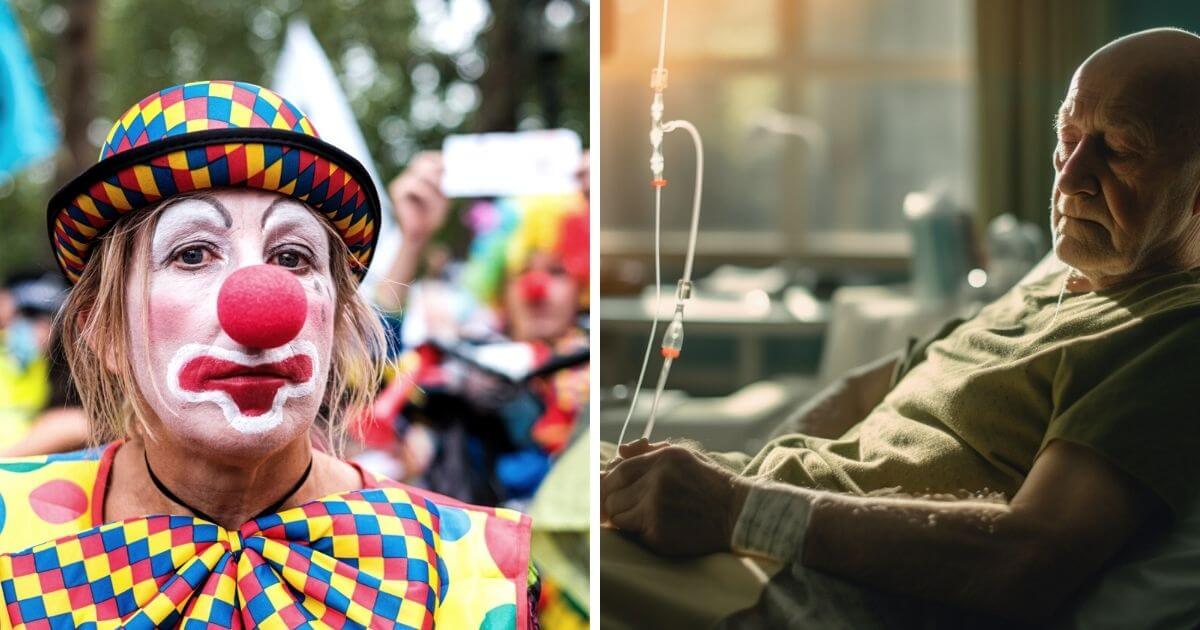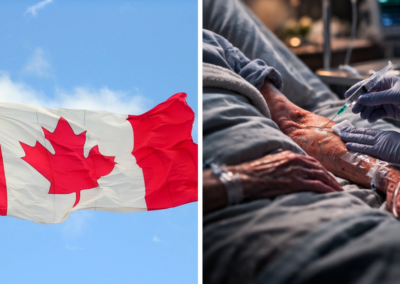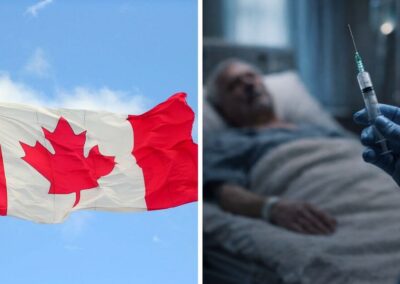A doctor who performs euthanasia in Canada has described the experience of ending the life of a man dressed as a clown as “wonderful”.
In her book on assisted suicide, Dr Stefanie Green, who has ended the lives of more than 300 people by euthanasia, recounted one incident where she euthanised a man dressed as a clown.
Green described how on the day she euthanised the man “he excused himself to go to the washroom and returned wearing a full clown suit: tie-dyed pants and T-shirt, a colorful wig, and a red nose. He told me he hadn’t been sure if he was going to use the nose or not, but in the end, he’d decided to go for it…”.
“I asked him why he’d chosen to wear the clown suit on this day, and he told me he wanted to go out laughing. He figured this was his best bet.”
Now, in a recent interview in which she was asked about this incident, she said “For Ed [the man who was euthanised] it was really important that he be in this clown suit and… there’s a real beauty in recognising that for Ed this was key and it was such a wonderful thing to be able to facilitate this with Ed.”
“the suffering I experience is mental suffering, not physical”.
Dr Green, an obstetrician, said she uses the term ‘deliveries’ to describe both the bringing of new babies into the world and euthanising her patients.
In her book, she writes “At both ‘deliveries,’ as I call them, I am invited into a most intimate moment in people’s lives”.
She has previously described the idea that some people are ending their lives due to fear of poverty or mental suffering as “clickbait”.
However, the New Atlantis found evidence of a number of people who sought to end their lives for precisely these non-medical reasons. One patient, Rosina Kamis, 41, suffered from leukaemia and other health problems and was euthanised in 2021 on this basis. However, in a letter apparently for her lawyer, she admitted that this was just a pretence and that the real reason for ending her life by euthanasia was due to the mental anguish she was experiencing.
She was facing eviction from her home, was crowdfunding to pay for food, and was concerned she would “suffer alone”.
She wrote “Please keep all this secret while I am still alive because… the suffering I experience is mental suffering, not physical”.
Recent polling in Canada has shown that 27% of respondents would support “poverty” being made a reason for euthanasia, and 28% of people surveyed in Canada support “homelessness” being made a reason for euthanasia, with a shocking 41% of 18-34-year-olds supportive of it being made a reason.
One in five cite loneliness as a reason to want to die
In 2021, 10,064 lives were ended by assisted suicide or euthanasia, an increase of over 32% from the previous year, accounting for 3.3% of all deaths in Canada.
According to the latest report on Medical Assistance in Dying from Health Canada, 17.3% of people also cited “isolation or loneliness” as a reason for wanting to die. In 35.7% of cases, patients believed that they were a “burden on family, friends or caregivers”.
Statistics from the state of Oregon, which made assisted suicide legal in 1997, show that most end-of-life concerns are not medical. The Oregon Health Authority report for 2021 says that 54.2% of patients were concerned with being a “burden on family, friends/caregivers”. 92% of patients were concerned with being “[l]ess able to engage in activities making life enjoyable”. 93.3% were concerned with “losing autonomy” and 68.1% were concerned with “loss of dignity”. Of the total who have died since 1997, 27.5% have listed “inadequate pain control, or concern about it” as one of their end-of-life concerns.
Right To Life UK spokesperson Catherine Robinson said “Dr Green’s apparent happiness at her role in the death of a man dressed as a clown is extremely perverse. As the data shows, people who end their lives are doing so in many cases for completely non-medical reasons. Loss of autonomy and perceived loss of dignity are social, psychological and moral problems. People who are suffering in these ways need assistance to live, not to die.”












